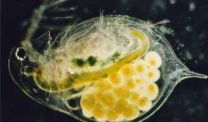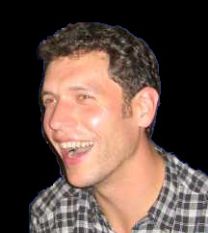

(Postdoc)
Limnological Institute
University of Konstanz
78457 Konstanz
Germany
phone: ++49 (0) 7531 88 2930
telefax: ++49 (0) 7531 88 4136
e-mail: Karsten.Rinke(at)uni-konstanz.de
  |
Dr. Karsten Rinke (Postdoc) Limnological Institute University of Konstanz 78457 Konstanz Germany phone: ++49 (0) 7531 88 2930 telefax: ++49 (0) 7531 88 4136 e-mail: Karsten.Rinke(at)uni-konstanz.de |

| Vita | |
| Research topics and fields of interest |
|
| Publications | |
| Awards |
|
| Conferences/Workshops/Invited talks | |
| Cooperations |
Vita |
|
| Nov
2005 - now |
Postdoc
at the Limnological Institute of the University of Constance (Prof.
K.O. Rothhaupt). Water quality management of Lake Constance;
application of the water quality management model DYRESM-CAEDYM
(project: BodenseeOnline). |
| May 2006
- Jul 2006 |
Guest
Researcher at the Kinneret Limnological Laboratory (Israel), in
cooperation with Dr. G. Gal and Dr. T. Zohary. Application of a coupled
hydrodynamic-ecological model (DYRESM-CAEDYM) to large lakes. |
| Apr 2006 |
PhD-thesis
at the Dresden University of Technology entitled "Species-oriented
model approaches to Daphnia
spp.: linking the individual level to the population level" (summa cum
laude). Exams in limnology and meteorology; Advisor: Prof. J. Benndorf.
(download) |
| Mar
2003 |
Guest
Researcher at the Netherlands Institute of Ecology, Centre for
Limnology
(NIOO-KNAW, Nieuwersluis), in cooperation with Dr. W.M. Mooij and Dr.
S.
Hülsmann. Development of dynamic energy budget models of Daphnia galeata and Daphnia pulicaria; quantitative
test of the size-efficiency hypothesis by means of a physiologically
structured model (Hülsmann, Rinke & Mooij, 2005). |
| Nov
2001 - Nov 2005 |
Scientist
at Institute of Hydrobiology at Dresden University of Technology within
the GETAS-project (Coupled hydrodynamic-ecological Simulation of
reservoirs).
Development of a stage-structured zooplankton model that can be
integrated in a water quality management model (Rinke & Vijverberg,
2005). |
| Aug
- Nov 2001 |
Scientist
at Institute of Hydrobiology at Dresden University of Technology.
Expertise about the water quality of a shallow lake by
means
of the ecological lake model SALMO. |
| Mar
- Apr 2001 |
Scientific
Secretarian at the Institute of Zoology at Dresden University of
Technology (Dr. S. Scholz). Coordination of an EU project proposal |
| Feb
2001 |
Graduation
(Diplom) in Hydrobiology, Microbiology and Water Engeneering. Diploma
thesis at Institute of Hydrobiology at Dresden University of
Technology,
supervised by Prof. J. Benndorf and Dr. T. Petzoldt, about
"Individual based simulation of diel vertical migration of Daphnia". |
| Aug
- Sep 1999 |
Student
trainee at EAWAG (Zürich, Switzerland), Department of Limnology
(Dr. C.T. Robinson). Nutrient limitation experiments in alpine glacier
streams (Rinke et al. 2001). |
| Feb
1996 |
I
continued my studies at Dresden University of Technology |
| Okt
1995 |
I
started to study biology at the Univertsity of Göttingen |
| Sep
1994 - Okt 1995 |
Civil
service in a child welfare |
| Jun
1994 |
Abitur
(secondary school final examination) |
| 19.09.1975 |
I
was born in Göttingen |
Awards |
|
Cooperations |
| Dr. Thomas Petzoldt, Dr. Susanne Rolinski and Dr. Stephan
Hülsmann (Dresden
University of Technology; Institute of Hydrobiology) |
| Dr. Wolf Mooij and Dr. J.
Vijverberg (Netherlands
Institute of Ecology NIOO-KNAW, Centre for Limnology) |
| Dr. Gideon Gal and Dr. Tamar
Zohary (Kinneret
Limnological Laboratory) |
| Dr. Peter Kasprzak and Dr. Bernd
Wiese (Leibniz-Institute
of Freshwater Ecology and Inland Fisheries) |